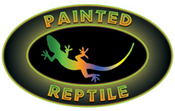Crested Gecko
Common name : Crested gecko , eye lash gecko
Species name : Correlophus ciliatus
Group or family : Correlophus
PR keeper level : 3
PR handler level : 3
Species background or natural history : the crested gecko was considered extinct until 1993 when they were rediscovered . A small breeding group was brought to the United States , where they were bred .
Physical description : the crested gecko comes in many shades , including brown , creme , and red . They have a skinny prehensile tails and a big head with formation over their eyes which resemble eyelashes .
Distribution : this species is found in New Caledonia and some surrounding islands .
Life span : this Species can live more than 15 years of cared for properly .
Caging : this species can be kept in screen and glass cages . Arboreal cages such as an expert terra terrarium are best , since this species lives high in the trees and is constantly jumping .
Cage decor : coconut fiber or cypress mulch are great substrates for this species . Several fake plants and wood pieces should be used since this species lives in trees and is never really on the floor .
Heating and lighting : this species should be kept at 65 - 85 degrees and do not need any heating or lighting . A heat pad can be used to achieve proper temperatures if do think they are too cold .
Humidity and water : this species needs to be sprayed 3 times a day , so they can drink water from drops on the terrarium walls and on the fake plants . The humidity should be at least 60 percent or higher which can be achieved by the 3 daily sprays .
Diet and feeding : this species should be fed crickets of the appropriate size and can also be fed powdered diets such as repashy or Pangea .
Supplements : this species needs calcium with d3 once a week .
Breeding : A male must be paired with a female In order to breed . Several females can be housed with a single male . A nest box is needed for the females to lay eggs In .
Handling your new pet : this species is great for handling but If it is grabbed by the tail this species will drop its tail and it will not grow back .

